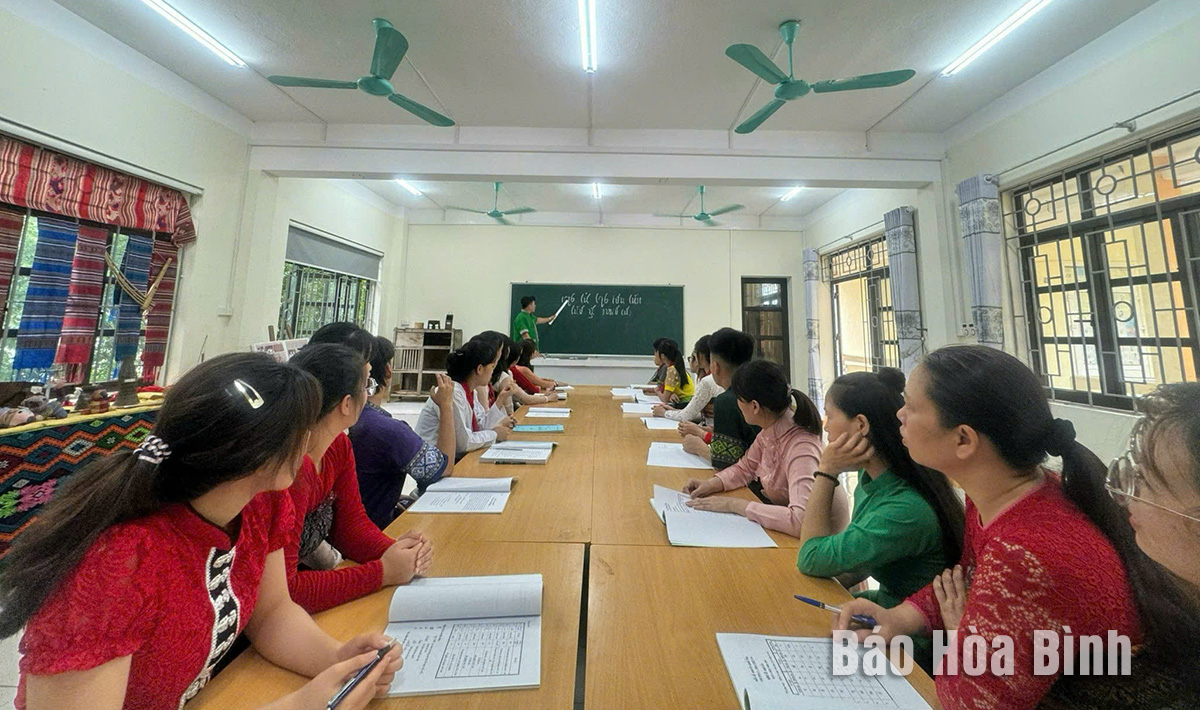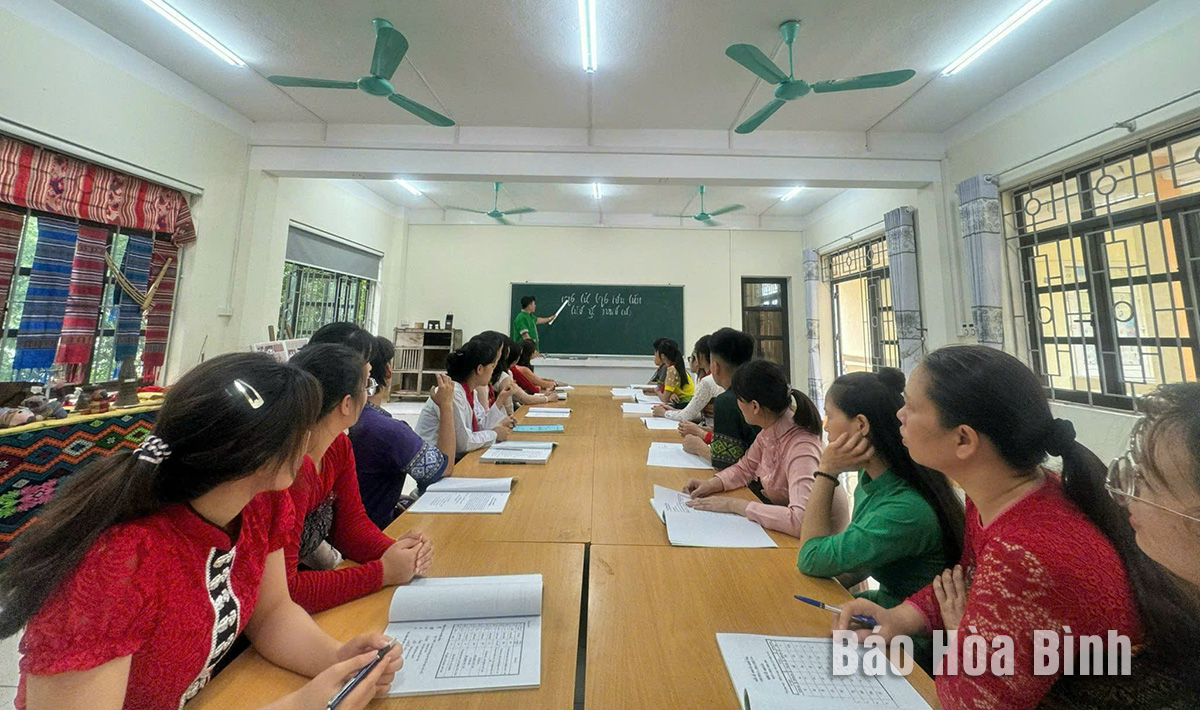
Mai Chau district of Hoa Binh province is home to seven ethnic groups, six of which are minorities. The cultural identities of the ethnic minority groups have been preserved well. One of the district’s effective preservation efforts is the establishment of a cultural preservation club at the Mai Chau Boarding Secondary and High School for Ethnic Minority Groups.
Teachers and students of the school learn about the language of Thai ethnic group when joining the club.
According to the school's Principal Dinh Thi Hao, the establishment of the club was based on surveys conducted among parents and students. Results showed that 215 students or 67% of the total expressed a desire for the school to set up a club that focuses on preserving ethnic cultural identities, with 60% wanting to learn the Thai script. Additionally, all parents agreed to support their children’s participation in the club.
The school sought guidance from local artisans who can share younger generations about cultural values of the Muong ethnic minority people.
Since its inception, the club has held activities on the cultural identities of the Thai, Muong, and Mong ethnic minority groups. Specific activities include inviting artisans to teach the art of playing the "keng loong" (a traditional bamboo instrument) to students. The school has invested in instruments for students to practice, with two teachers and ten students now proficient in playing. The club also organises excursions for students to learn about traditional wax painting from the Mong group in Hang Kia and Pa Co communes.
A dedicated space has been established for club activities, showcasing cultural products and preserving artifacts from the various ethnic minorities in the district. The school has invited artisans to teach the Thai script to students, and members participate in learning about Thai folk songs, the Gau Tao festival, Mong people’s New Year traditions, and traditional brocade weaving.
Evaluating the club's effectiveness, Hao noted that its activities have significantly enhanced the overall educational quality at the school. Students have closer bonds with the school and teachers, while parents have grown more trusting of the faculty. Club members actively collect, stage, and practice traditional dances, instrumental performances, and Thai folk songs. Many folk songs have been rehearsed for school and district events. The club has also trained members in the Xoe dance, which is performed during cultural festivals, holidays, and for tourists.
Students participating in the club recently achieved the fourth place in the provincial young creative science contest with two projects - "Solutions for Promoting Community Tourism Development in Mai Chau through a Bilingual Travel Guide" and "Some Solutions for Preserving and Promoting Mong Ethnic Cultural Heritage." Most importantly, students have gained a deeper understanding and appreciation of their ethnic roots, motivating them to study and improve their skills.
With an increasingly vibrant and widespread emulation movement aimed at building cultured residential areas and cultured families, Yen Thuy District has been making steady progress toward improving both the material and spiritual well-being of its people, while fostering a civilized, prosperous, beautiful, and progressive community.
Once lacking recreational spaces and community facilities, Residential Group 2 in Quynh Lam Ward (Hoa Binh City) has recently received attention for the construction of a new, spacious, and fully equipped cultural house. The project followed the model of state support combined with public contributions in both labor and funding.
The "All people unite to build cultural life" movement, which has been effectively integrated with Kim Boi district’s socio-economic development goals, is fostering a lively spirit of emulation across local residential areas, hamlets, villages, public agencies, and enterprises. In addition, through the initiative, traditional cultural values are being preserved and promoted, while community solidarity and mutual support in poverty reduction and economic development are being strengthened.
A working delegation of the Hoa Binh provincial People’s Committee led by its Permanent Vice Chairman Nguyen Van Toan on June 11 inspected the progress of a project to build the Mo Muong Cultural Heritage Conservation Space linked to tourism services in Hop Phong commune, Cao Phong district.
Born and growing in the heroic land of Muong Dong, Dinh Thi Kieu Dung, a resident in Bo town of Kim Boi district, in her childhood was nurtured by the sweet lullabies of her grandmother and mother. These melodies deeply imprinted on her soul, becoming an inseparable part of her love for her ethnic group's culture. For over 20 years, this love for her hometown has driven Dung to research, collect, and pass down the cultural values of the Muong people to future generations.
In the final days of May, the Ethnic Art Troupe of Hoa Binh Province organized performances to serve the people in remote, mountainous, and particularly disadvantaged areas within the province. These were not just ordinary artistic shows, but they were the meaningful journeys aimed at spreading cultural values, enhancing the spiritual life of the people and contributing to the preservation of ethnic minority cultural identities.



